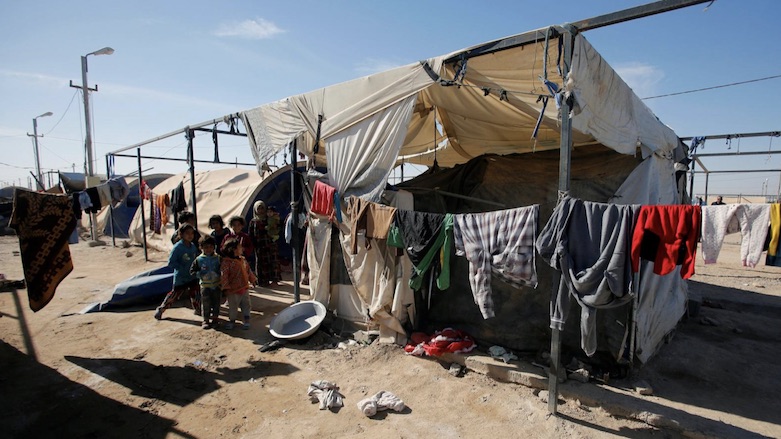Displaced Iraqis forcibly returned home so elections are held on time: Aid workers

ERBIL, Kurdistan Region (Kurdistan 24) – Iraqi authorities are forcing displaced persons and refugees back to their areas in the predominantly Sunni Anbar Province despite unsafe conditions so that elections are held on time, aid workers say.
Iraqi security forces are sending people back to their liberated areas against their will, exposing them to death from booby-traps or acts of terrorism, so that elections planned for May are held on time, Reuters reported on Sunday.
According to refugees and aid workers, Iraqi Prime Minister Haider al-Abadi’s Shia-led government “is more interested in winning elections in May than alleviating the suffering of displaced Iraqis and returning them safely home.”
Last month, Abadi had stressed there was no reason the elections should be delayed, and forcing the displaced to return home would ensure that did not happen.

Aid workers told Reuters that military trucks “arrive at camps unannounced and commanders read out lists of people, who have one hour to pack their belongings and go.”
The aid workers, who spoke on condition of anonymity, said up to 5,000 people were forcibly returned to newly-liberated areas in the Anbar Province between Nov. 21 and Jan. 2.
“These returns are not safe,” one aid worker was quoted by Reuters. “Even those who don’t openly resist really have no other choice. They cannot really say no to a bunch of people with guns.”

Meanwhile, Iraqi Joint Operations Command Spokesperson Brigadier General Yahya Rasool downplayed the claims and said the allegations of forced returns were “an exaggeration.”
“Our primary concern is the safety of our citizens, our job is to protect people,” he said, adding that “citizens have to go home” now that the Islamic State (IS) has been defeated.

People at the refugee camps said they would voluntarily leave the site once their newly-liberated areas are safe and “once there are adequate health services.”
According to the United Nations International Organization for Migration, over 3.2 million people had returned to their original homes by the end of December, with 2.6 million still displaced.
“They are doing this because of the election,” Mahdi Ahmed, a refugee at the camp, said. “If I go back and see my house destroyed, my money gone, and my life ruined, why would I vote for them?”
